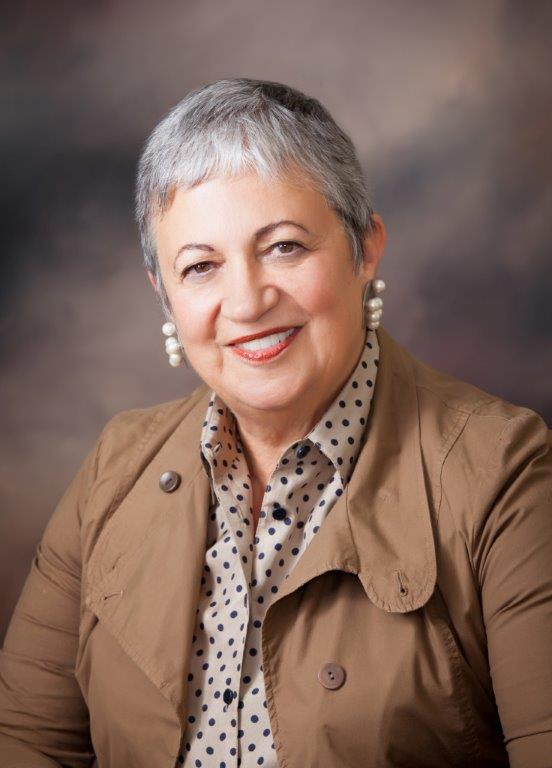Nearly
150 Attend Inaugural SJV Clean Transportation Summit Oct. 19
in Clovis
|
|
|
 The
inaugural San San Joaquin Valley Clean Transportation Summit
was attended by close to 150 people. Conducted Oct. 19 at the
Clovis Veterans Memorial District in Clovis, the Summit
provided an opportunity to learn about the latest in
advanced, clean transportation technology options right here
in the Valley through an up close and personal experience.
Attendees were able to interact with owners and operators of
clean emission vehicles, meet with manufacturers and dealers,
hear from state and local agencies, and learn about rebate
and incentive programs. The
inaugural San San Joaquin Valley Clean Transportation Summit
was attended by close to 150 people. Conducted Oct. 19 at the
Clovis Veterans Memorial District in Clovis, the Summit
provided an opportunity to learn about the latest in
advanced, clean transportation technology options right here
in the Valley through an up close and personal experience.
Attendees were able to interact with owners and operators of
clean emission vehicles, meet with manufacturers and dealers,
hear from state and local agencies, and learn about rebate
and incentive programs.
In addition to speakers and breakout sessions on topics
including electric vehicles and natural gas alternatives, the
Summit featured vendor booths and numerous vehicles on
display. The event opened with speeches from dignitaries and
industry leaders, including California Assemblymember Dr.
Joaquin Arambula, CALSTART President and CEO John Boesel (pictured above left)
and George Minter, Regional Vice President of External
Affairs and Environmental Strategy, Southern California Gas
Co. Keynote speakers were Oliver L. Baines III, Fresno City
Council; Sheraz Gill, Director of Strategies and Incentives,
San Joaquin Valley Air Pollution Control District; and John
Kato (pictured
above right), Deputy Director of Fuels and
Transportation Division, California Energy Commission. The
day ended with vehicle ride-and-drive demonstrations.
The Summit was organized by CALSTART in partnership with
Fresno State’s Office of Community and Economic Development
and various industry partners. View the Summit video to see
highlights of the event.
|
|
|
Envision
Solar's EV ARC, using solar panels to power Level 2 electric
vehicle chargers from Telefonix, soon will appear at city
halls throughout Fresno County, making it the first county in
the nation to have EV charging in all of its incorporated
cities.
|
|
|
Fresno
County to be First in Nation to Get EV Charging in Rural
Incorporated Cities
|
|
|
Selma
residents in late November will see an EV ARC™ providing
electric vehicle charging at city hall, followed by similar
installations at Kingsburg, Fowler, Kerman, San Joaquin,
Huron, Coalinga, Firebaugh, Mendota, Orange Cove, Reedley,
Sanger and Parlier. When completed, Fresno County will be the
first in the nation to have EV charging at all of its rural
incorporated cities. Fresno and Clovis already have several
Level 2 EV charging sites, as well as DC fast chargers (Level
3) at multiple locations.
Fresno County Rural Transit Agency (FCRTA) General Manager
Moses Sites outlined the project for those attending the
electric vehicle breakout session at the San Joaquin Valley
Clean Transportation Summit Oct. 19. FCRTA is directing the
project with assistance from CALSTART and funding from
several sources, including the San Joaquin Valley Air
Pollution Control District's Charge Up! program, which
now offers funding for the EV ARC™.
Envision Solar has
patented the EV ARC™ that couples solar power with on-board
battery storage to provide EV charging day or night, even
during power outages and emergencies. In addition to being
transportable, the EV ARC™ does not require any permits,
civil engineering or planning, foundations, trenching or electrical
connections. The Fresno County sites all will be installed
with two Level 2 PowerPost EVSE chargers from
Telefonix.
|
|
|
This
Angus Transportation, Inc., truck features a Cummins Westport
ISX12-G natural gas engine.
|
|
|
Natural
Gas Engines Provide Clean, Reliable Alternative for Trucking
Fleets
|
|
|
Near-Zero
(NZ) emissions from new natural gas engines offer the
heavy-duty market technology that is available today and
deployable today, George Minter, Regional Vice President of
External Affairs and Environmental Strategy for Southern
California Gas Co., told those attending the San Joaquin
Valley Clean Transportation Summit Oct. 19.
The Hybrid and Zero-Emission Truck and Bus Voucher Incentive
Project (HVIP) offers point-of-sale incentives for
clean trucks and buses in California. Administered by CALSTART,
HVIP's low-NOx incentives (tracked separately than
conventional HVIP funding) are designed to cover the full
incremental cost over a standard natural gas engine and
includes both repowers as well new vehicles. A total of 1.86
million in incentives currently is available exclusively for
low-NOx engines/vehicles, with approximately another $21
million in voucher funding added in February 2017. Incentive
amounts are determined by the increased incremental cost,
with current caps at $15,000 and increasing to $25,000 in
February to accommodate the eventual introduction of
larger Near-Zero 12 liter engines.
Although
more trucks and buses will be added in the future, current
eligible engines/vehicles and incentive amounts include:
- Repower any
vehicle with Cummins ISL G Near-Zero 8.9 liter
engine, $15,000
- New Autocar
Xpeditor Refuse Truck with ISL G Near-Zero 8.9 liter
engine, $8,500
- New ElDorado
National Transit Bus with ISL G Near-Zero 8.9 liter
engine, $15,000
- New Gillig
Transit Bus with ISL G Near-Zero 8.9 liter engine,
$10,000
For
more information, go to the HVIP website or call
888-457-HVIP.
|
|
|
Chevrolet
Bolt Expected to Drive 2017 Sales as California Tops 250,000
EVs
|
|
|
 It
isn't even at dealerships yet, but with the EPA estimating an
electric range of 238 miles and a base sticker price of
$37,495 before rebates and incentives, the Chevrolet Bolt
already is getting a lot of attention. It has won the
prestigious 2017 Motor Trend Car of the Year
award and has been named the Green Car Reports Best Car to Buy 2017.
If such accolades aren't enough for those with any remaining
range anxiety, 238 miles is the approximate distance from
Bakersfield to Stockton! It
isn't even at dealerships yet, but with the EPA estimating an
electric range of 238 miles and a base sticker price of
$37,495 before rebates and incentives, the Chevrolet Bolt
already is getting a lot of attention. It has won the
prestigious 2017 Motor Trend Car of the Year
award and has been named the Green Car Reports Best Car to Buy 2017.
If such accolades aren't enough for those with any remaining
range anxiety, 238 miles is the approximate distance from
Bakersfield to Stockton!
California leads the nation in EV sales and is anticipated to
top 250,000 EVs sold by this month, according to a Nov. 14
news release by the California Plug-In Electric Vehicle
Collaborative (PEVC). "The 2017 Chevy Bolt EV – the
first EV capable of 238 miles of range and offered at an
affordable price – will arrive in Chevy showrooms this year
and provides an ideal option for even more buyers to purchase
an electric vehicle,” Steve Majoros, Marketing Director,
Chevrolet Cars and Crossovers, said in the PEVC news release.
San Joaquin Valley residents who purchase or lease a new EV
may qualify for up to $15,000 in rebates and incentives,
depending on income and eligibility. In addition to a $7,500
federal tax credit, the San Joaquin Valley Air Pollution
Control District's Drive Clean rebate is $3,000
and the California Clean Vehicle Rebate Project
(CVRP) provides an additional $2,500 for all-electric
vehicles. While CVRP now has a cap for higher-income
consumers, Californians with low and moderate incomes can get
increased rebates. Consumers with household incomes less than
or equal to 300 percent of the federal poverty level ($72,900
for a family of four for 2016) are eligible for an increased
rebate amount of $2,000, bringing the total state rebate
amount to $4,500. (Photo by Jennette Waymire)
Most significantly, the Chevy Bolt signals what is to come
for EVs. Until now, only Tesla has offered EVs with a range
of more than 200 miles – but at more than twice the cost
of a Bolt. Tesla has taken nearly 400,000 reservations for
its much-hyped Model 3, which its website says will have
"215 miles of range per charge while starting at only
$35,000 before incentives" and will go into production
by mid-2017. The Leaf is the nation's top-selling EV,
first introduced in 2010. Nissan has released few details
about its 2018 model due out late next year, but it also is
expected to compete with the Bolt both in range and price.
Although Valley dealers may receive some Bolts in December
and January, they don't know how many they will get and
expect them to sell quickly. Those interested in reserving a
Bolt can do so by putting down a $500 refundable deposit. In
the Fresno area, contact Melissa Dominguez at Hedrick's
Chevrolet at 559-347-5436 or MDominguez@hedrickschevy.com.
In the Modesto area, contact David Schene at American
Chevrolet at 209-499-6380 or DSchene@americanchevrolet.com.
In the Bakersfield area, contact Jennette Waymire at 3 Way
Chevrolet at 661-444-1761 or jwaymire@3waychev.com.
(Photo by Jennette Waymire)
|
|
|
Biodico
Westside Bringing Clean Biofuel and Green Jobs to the San
Joaquin Valley
|
|
|
Biodico
Westside is the world’s first fully sustainable liquid
biofuel facility in the San Joaquin Valley. Located at Red
Rock Ranch in Five Points, the world’s first "Zero Net
Energy Farm," these facilities will serve as templates
for California and the country as a whole, Biodico Founder
and President Russ Teall, told a group attending Fresno State
University's San Joaquin Valley Clean Energy Cluster meeting
Nov. 9 during a tour of the site and presentation.
In addition to processing recyclable feedstocks, including
used cooking oil, vegetable oil and animal fats to name a
few, the facility also utilizes anaerobic digestion,
gasification and an advanced utility scale solar cogeneration
system. Biodico Westside produces up to 20 million
gallons of biodiesel per year, supplying renewable fuel to
the ag industry's truck fleet, and also has created
"green jobs" in a disadvantaged area with high
unemployment and poor air quality.
The California Energy Commission (CEC) has awarded a $1.2
million grant for the project. In addition to the SJV Clean
Energy Cluster, some of the other project collaborators
include the San Joaquin Valley Air Pollution Control
District and the U.S. Navy, which is the world's largest user
of diesel fuel. Biodiesel can be used in diesel engines with
little or no modification while providing significant
emissions benefits.
To learn more, see the Zero Net Energy Farms presentation
from the Nov. 9 meeting or view Biodico's video.
|
|
|
|
|
|
|
|




































